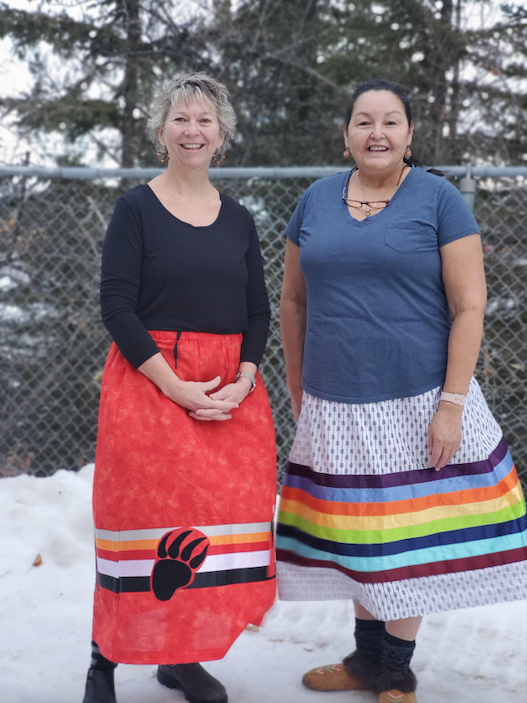
USask researchers are working alongside Indigenous communities to expand the current sexual health curriculum. The federally funded project, titled atotitum (Becoming of Age), aims to address systemic issues and work toward culturally inclusive sexual education with appropriate resources for Indigenous youth.
Amanda Froehlich Chow of the USask School of Public Health will lead this project in collaboration with Indigenous Elders, Knowledge Holders, youth, teachers and the wider community.
In an interview with the Sheaf, Froehlich Chow spoke about the objectives of the project and how it will be created and executed.
“This is very much going to be a community-driven project,” Froehlich Chow said. “We plan to work closely with those with lived experience.”
Froehlich Chow notes that there is a large gap within the standard sexual health curriculum that leaves little room for culturally inclusive Indigenous teachings. The new program will be aimed toward students in grades six through nine to help Indigenous youth transition into their teenage years.
The project intends to improve the overall wellness and sexual health of Indigenous youth. Additionally, atotitum aims to connect them with their Indigenous identities.
“We are trying to help strengthen connections and bonds between youth and the Elders within their community and help in that intergenerational sharing of knowledge and transfer of worldviews,” Froehlich Chow said.

To do this, atotitum will use traditional methods of teaching to uphold Indigenous standards.
“The curriculum will include Indigenous ways of knowing and being,” Froehlich Chow said. “It will include land-based learning opportunities, art-based learning and teaching, storytelling [and] visual arts.”
In addition, the curriculum will seek to connect with mainstream medicine and health practices through an Indigenous lens.
“etuaptmumk (Two-eyed Seeing) will be applied to braid Indigenous ways of knowing, being and doing about sexuality, gender roles and responisibilties with Western knowledge of HIV, hepatitis C (HCV) and other sexually transmitted blood-borne illnesses,” Froehlich Chow said in an interview with the University of Saskatchewan College of Medicine.
atotitum ‘s intersectional approach will also touch on other systemic inequities, including the incorporation of diverse Indigenous voices and teachings from the LGBTQ2S+ community.
“We want to talk about sex and gender in an open way,” Froehlich Chow said. “We’re guided by these pillars of inclusivity and diversity and we want to celebrate that and have us feel good about our differences.”
In breaking barriers and addressing systemic inequities, Froehlich Chow and her team anticipate community engagement and empowerment.
“We’re hoping to see an engaging community, informed and rooted in Indigenous based curriculum,” Froehlich Chow said. “A curriculum that youth and community, those who have lived experience and Indigenous teachers feel they have ownership over, [that] they feel proud of.”
Additional outcomes of the new curriculum aim to expand knowledge surrounding healthy sexual practices and awareness.
“A reduction of STBBIs (sexually transmitted and blood-borne infections), HIV and HCV is the more long-term [goal],” Froehlich Chow said, noting that the incorporation of mainstream sexual education will help reduce the transmission of infections.
The collaboration will address the systemic inequities and rewrite a curriculum better suited for Indigenous youth.
“We want to incorporate and really celebrate diversity and inclusivity.”
—
Rayyann Haque | Staff Writer
Photos: Supplied by Dr. Amanda Froehlich Chow
Leave a Reply